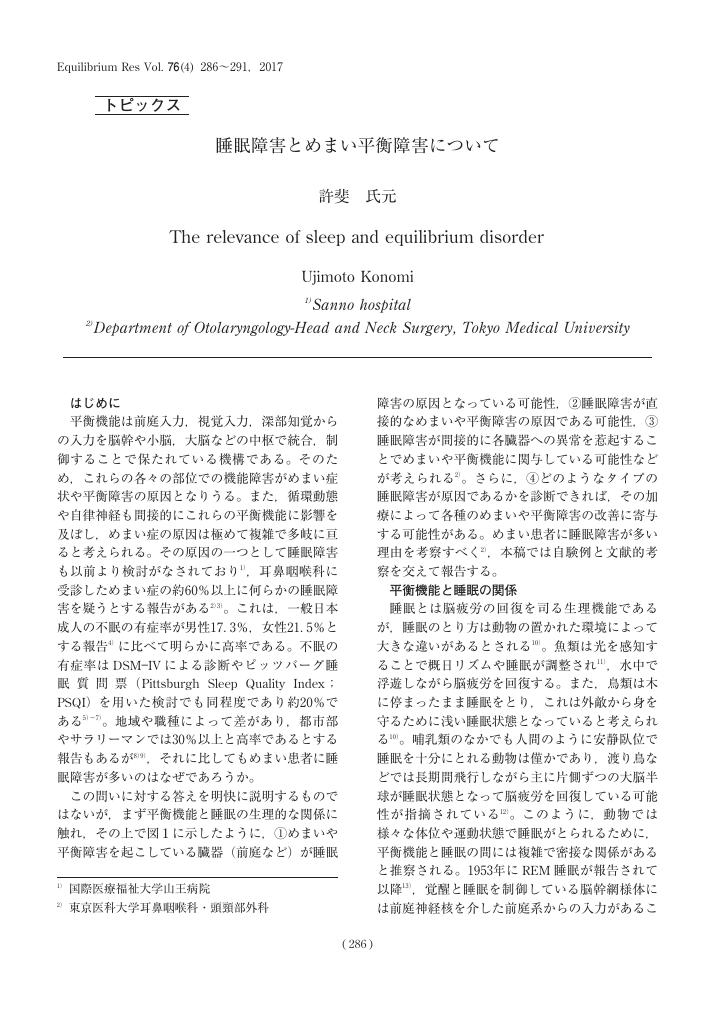4 0 0 0 OA 内転型痙攣性発声障害に対する甲状披裂筋切除術
- 著者
- 本橋 玲 渡嘉敷 亮二 平松 宏之 野本 剛輝 許斐 氏元 櫻井 恵梨子 豊村 文将 塚原 清彰 鈴木 衞
- 出版者
- THE JAPAN LARYNGOLOGICAL ASSOCIATION
- 雑誌
- 喉頭 (ISSN:09156127)
- 巻号頁・発行日
- vol.26, no.2, pp.93-98, 2014-12-01 (Released:2015-07-22)
- 参考文献数
- 11
Thyroarytenoid muscle myectomy (TAM) is a useful procedure for treating adductor spasmodic dysphonia (ADSD), in addition to type II thyroplasty (TP II), and both are performed in our department in Japan. In the present study, we examined the surgical outcomes of TAM. The subjects were 31 patients who underwent TAM between 2008 and 2013 at Tokyo Medical University Hospital, who could be followed up for at least six months following surgery and whose voice quality evaluation data were available. A comparison of voice evaluations pre-surgery and six months post-surgery was made. After six months, a significant improvement was seen in all of the voice quality evaluation items, including “strangulation”, “interruption”, “tremors” and voice handicap index (VHI). There was a marked recurrence of the symptoms in two of the 31 subjects within six months. Hemorrhage and scarring were observed as postoperative complications. In addition, we gave a questionnaire to 30 of the subjects who were followed up for at least one year following surgery, which asked about the recurrence of hoarseness and the degree of satisfaction with the surgery. Fifteen subjects responded (50%). The period of continuous hoarseness had ranged from one to 24 months. No subject felt that the hoarseness was a serious impediment in daily life, and the median period required for its disappearance was four months. Symptoms recurred in three subjects, but they tended to be mild. All 15 subjected reported experiencing a benefit from the surgery. The degree of satisfaction with TAM is very high, and we consider it to be a useful procedure for adductor spasmodic dysphonia.
1 0 0 0 OA 睡眠障害とめまい平衡障害について
- 著者
- 許斐 氏元
- 出版者
- 一般社団法人 日本めまい平衡医学会
- 雑誌
- Equilibrium Research (ISSN:03855716)
- 巻号頁・発行日
- vol.76, no.4, pp.286-291, 2017-08-31 (Released:2017-10-01)
- 参考文献数
- 40
- 被引用文献数
- 1 1
1 0 0 0 OA ピッツバーグ睡眠質問票日本版を用いためまい患者における睡眠障害の検討
- 著者
- 許斐 氏元 鈴木 衞 小川 恭生 大塚 康司 萩原 晃 稲垣 太郎 井谷 茂人 斉藤 雄
- 出版者
- 一般社団法人 日本めまい平衡医学会
- 雑誌
- Equilibrium Research (ISSN:03855716)
- 巻号頁・発行日
- vol.73, no.6, pp.502-511, 2014-12-31 (Released:2015-02-01)
- 参考文献数
- 25
- 被引用文献数
- 1 15
This study was performed to determine the frequency and degree of sleep disturbance in patients with dizziness using the Pittsburgh Sleep Quality Index, Japanese Version (PSQI-J), and investigate the relationship between dizziness and sleep disturbance. Fifty-two patients (20 male, 32 female) with a chief complaint of dizziness visited the dizziness clinic of the Department of Otolaryngology, Tokyo Medical University, for 3 months in 2013. The patients' age (average ± standard deviation) was 54.4±17.0 years (range, 10-88 years). The average PSQI global score was 7.6±4.2 points, which exceeds the 5.5-point cut-off for insomnia. In total, 67.3% of patients scored >6 points, and 35.8% scored >9 points, indicating definite sleep disturbance. With respect to the demography of disease groups, patients with Meniere's disease scored an average of 7.9 points, those with autonomic imbalance scored 8.8 points, and those with psychogenic dizziness scored 9.7 points; all of these diseases were associated with high PSQI scores. Patients with benign paroxysmal positional vertigo and patients with no abnormal findings showed relatively low scores (6.7 and 5.3 points, respectively). Patients with suspected sleep apnea syndrome, restless leg syndrome, and parasomnias tended to show high scores (>10 points). A high rate and high grade of sleep disturbance were confirmed in patients with dizziness, indicating that sleep quality affects several types of dizziness and vertigo. Understanding sleep disorders is helpful for the diagnosis and treatment of dizziness and provides a new perspective on the etiology of dizziness.
